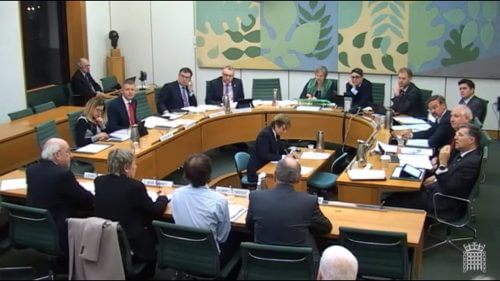
Report states that while market unfairness should be addressed, the DfT must not ‘use a sledgehammer to crack a nut.’ Several industry bodies have responded to the report
The Transport Select Committee (TSC) has released its report on Community Transport (CT) and the Department for Transport’s (DfT) proposed consultation.
The committee recommended that the DfT’s consultation should avoid a narrow, legalistic focus on bringing UK guidance and legislation into line with relevant EU Regulations, and should be used as an opportunity to consider reforms. It also said that proposals to address instances of unfairness should be considered in the forthcoming consultation, but the DfT must not use a sledgehammer to crack a nut.
The DfT was criticised for acting too slowly, and told to consider whether a satisfactory outcome may have been achieved earlier had it tackled relatively localised issues head on several years ago.
A spokesperson from the Community Transport Association (CTA) said: “Following its investigation into CT, the TSC in its report has confirmed that CT is invaluable, safe, operating within commonly understood guidelines, and for many people, the only means of getting to where they need to be.
“It is import that the DfT now reflects on the TSC’s findings and considers the range of public policy solutions to ensure CT can not only survive, but thrive.
“CTA will be in contact with the Department to again make the point that the upcoming consultation must not take a narrow legalist approach, but encourage a discussion on the range of policy options available, including any changes to legislation.”
Martin Allen, Director of the Bus & Coach Association, told CBW: “Everyone awaits the consultation that will confirm the law and how CT groups will have to operate in the future. It’s very clear there is a lack of interest from DVSA to enforce the law and if that is to be the case, it will leave us with no option but to start proceedings against someone. That is in the pipeline.
“How can the sector apply for commercial O-licences with assets they intend to use from the charity? A separate undertaking should be established. This in a few cases is being done, but the directors are the same that sit on the charity. You can’t do that (state aid) and Local Authorities (LAs) know this will bring challenges.
“If no commercial operator shows interest, then the LAs can award contracts after steps have been made to commercial operators, issuing bodies and DVSA. However, this week an officer of Staffordshire CC did the opposite – he awarded three contracts to Community Link and never offered them to the commercial operator that tendered for those contracts. This council officer gave evidence at the TSC, so can you trust authorities to follow the correct procedure?
“They all gave evidence to the effect that it is a minor impact. If that was the case then why were we all at the TSC? Did the committee discover the truth? It’s obvious they didn’t because I don’t think even the devil would get it out of them. It’s a very large merry-go-round that they’re all frightened to jump off because it’s spinning at speed.
“There’s one thing to consider – we are correct on the law and they know that.”
Lianna Etkind, Public Transport Campaigner for the Campaign for Better Transport, commented: “We welcome the TSC’s recommendations on safeguarding the future of CT. CT is vital for people across the country, especially in places where bus routes have been cut, or where there is simply not enough demand for a commercial bus service to run.
“The Government, CT providers and LAs must now work together to ensure that the sector can continue to connect people up to services, friends and family – otherwise even more people will be left alone in their homes, isolated from social contact.”
A CPT spokesperson added: “CPT welcomes the TSC’s report which recognises that the legal and regulatory framework under which CT services operate needs updating. CPT has always maintained that large and well-resourced organisations that have been using the permit system to compete unfairly against licensed operators should play by the same rules as those licensed operators.
“The Committee’s report acknowledges that where instances of unfairness occur, they should be addressed. CPT looks forward to participating in the DfT’s consultation, and is confident that the updated legislation will result in a system that is fairer for all operators.”

